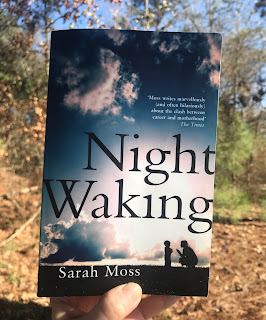I should have known better than to even try it. Sam bought our copy, mainly because everyone was talking about how great de Waal's first novel (My Name is Leon) was, but this one had a more interesting title. He tried to read it but found it boring and didn't get very far through it before he gave up ("it just goes on endlessly about dolls"). I thought maybe he was being unfair, and maybe he didn't give it long enough. Plus, it was published by Penguin! They're usually pretty good at picking books I like.
Oh well. Not this time.
This is the story of Mona the middle-aged Irish dollmaker. Actually there's a carpenter who makes the dolls, and Mona dresses them and paints faces on them. Mona's mundane life in her doll shop is interspersed with memories from forty years before, when she was newly married to William. At least there is some element of mystery that propels the reader to find out what happened in the intervening time.
So why was this book not a good match for me? Part of it is the overall general sense of the book. It seems to be a typical example of Women's Fiction (not to be confused with a Beach Read, though I am sure there is some overlap). There is something that bothers me about writing that is targeted to women readers. I want to read something that doesn't try to pigeonhole me.
Specifically, there were several other things that rubbed me the wrong way. I found the characters flat. And for the ones that were slightly more dimensional, their facets were incongruous. I think back to books I've read where the characters were utterly real. I can't pinpoint the difference between those and these, but there definitely is one. These characters were all acting parts, and not very good at it. Maybe I would have felt more drawn to the main character if I'd been through what she had; lucky for me, I have not. However, most really good books can make me feel the experience I'm reading about even if I've never experienced it myself.
I thought at times the writing was quite cliched--of course the main character gets a new, short, chic haircut halfway through the book. And of course when her love interest sees her for the first time with her newly shorn locks, her hand immediately "flies up" to touch her new 'do.
And yes, there's a trick to this book (not just to time), and yes I guessed the solution long before it was revealed. I blame the cover quote, which made me aware that the book has "one of those endings that makes you want to reread the whole book." That, put together with my tendency towards speculation, set me on the right track. But rather than a feeling of satisfaction when I found out I was right, it was disappointing. Not least because the ending certainly did *not* make me want to reread the whole book.




















